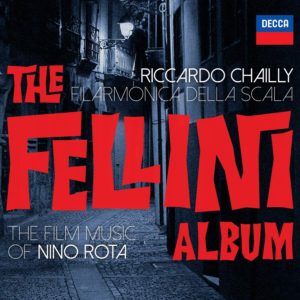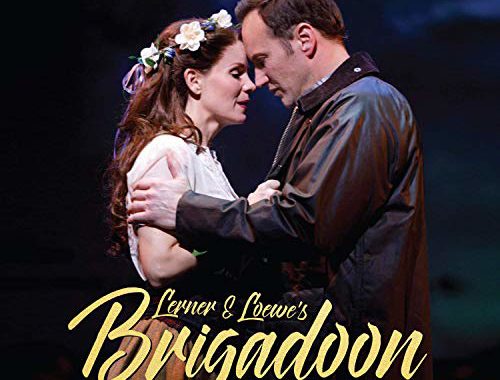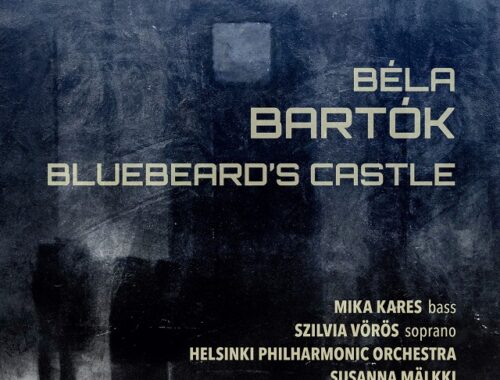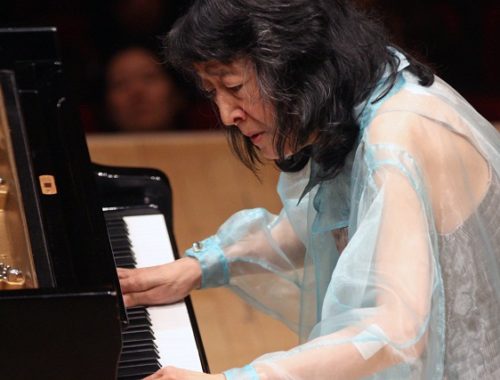GRAMOPHONE Review: The Fellini Album – The Film Music of Nino Rota, Filarmonica Della Scala/Chailly
 Enter the extraordinary world of Federico Fellini – a world where childhood dreams strive to lose touch with reality, where playboys and clowns rub shoulders and pretty much all life is a three-ring circus. In Fellini’s Italy there was only one kind of music – the music of Nino Rota. The man described by the film maker as his ‘magical friend’ ennobled popular music in ways that only a musician of child-like intuition and high sophistication could. He referenced the music that Fellini knew and loved best (which wasn’t much, it seems) mingling dance tunes with American standards and circus marches. There is nostalgia in every bar. You hear Rota’s Fellini scores, you see the images; you see the images, you hear the music.
Enter the extraordinary world of Federico Fellini – a world where childhood dreams strive to lose touch with reality, where playboys and clowns rub shoulders and pretty much all life is a three-ring circus. In Fellini’s Italy there was only one kind of music – the music of Nino Rota. The man described by the film maker as his ‘magical friend’ ennobled popular music in ways that only a musician of child-like intuition and high sophistication could. He referenced the music that Fellini knew and loved best (which wasn’t much, it seems) mingling dance tunes with American standards and circus marches. There is nostalgia in every bar. You hear Rota’s Fellini scores, you see the images; you see the images, you hear the music.
You should almost play this disc in reverse and begin with William Ross’ gorgeous arrangement of the sinewy, wistful, waltzy main title of Amarcord. Chailly – who first met Rota when he was just 21 and directing a performance of his Piano Concerto – totally ‘gets’ the apparent ease of expression that belies the deepest feelings. Amarcord is Fellini looking back to the 1930s in search of a lost reality. The aforementioned main title is the stream of consciousness through which the city of Rimini comes back into focus. The sudden appearance of a lone saxophone playing Harold Arlen and Ted Koehler’s ‘Stormy Weather’ might just portend the annual ‘Fascist Saturday’ activities.
Otto e mezzo (8 1/2) is again autobiographical – a movie-maker’s diary of writer’s block or more specifically the elusive mistress of inspiration which comes with growing up. Out of the glacial chord sequences which shimmer like a heat-haze obscuring the past come tuneful recollections – of childhood (always wistful) marching into trouble, of troublesome mistresses like Carlotta whose ‘Galop’ keeps threatening to become Khachaturian’s ‘Sabre Dance’.
The Suite from Fellini’s masterpiece La Dolce Vita – again masterful arranged by William Ross – indelibly chronicles the seven days and nights of ‘sweet life’ in the Eternal City as gossip columnist Marcello Rubini (Marcello Mastroianni) does his thing – famously at one point with Anita Ekberg in the Trevi Fountain. 50s chic has its own sound and I love the way that Rota’s catchy principle theme arrives at its lush apotheosis. Chailly and his La Scala players positively salivate over its grand reprise. It’s all in the flavour.
Bruno Moretti has done a terrific number on Fellini’s Casonova underscoring his amorous adventures in ways that emphasise the movie’s surreal and grotesque style. The hero’s audacity is quirkily inflected through harpsichord and organ colourations as we romp from one amorous encounter to the next.
And it’s not such a stretch to Clowns, the suite from which does precisely what it says on the tin in celebration of Fellini’s lifelong passion for the circus. We enter the Big Top through a sequence of madcap slapstick and colourful marches. Fucik’s ‘Entrance of the Gladiators’ is de rigueur, of course, while the solo trumpet gets to be master of ceremonies in ways that always hint at the melancholy lurking behind the painted smile of all great clowns.
If you love Fellini you’ll love this. Because you can’t love Fellini without loving Rota and you can’t love Rota (not this Rota) without loving Fellini.
You May Also Like

GRAMOPHONE Review: Brigadoon – New York City Center 2017 Cast/Berman
27/03/2019
GRAMOPHONE: From Where I Sit – August 2021
12/08/2021

